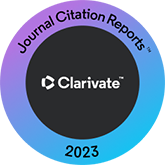Juan de Segobia and the Manuscripts of the Qur’ān’s Latin Translation by Robert of Ketton
DOI:
https://doi.org/10.3989/alqantara.2021.007Keywords:
Alchoran, Robert of Ketton, Juan de Segobia, Manuscript Tradition, Theodor BiblianderAbstract
The aim of this paper is to demonstrate the close relationship between two of the extant manuscripts of the Qur’ān’s Latin translation by Robert of Ketton (1142-1143), and the figure of Juan de Segobia (1390/5-1458), who from 1437 had studied this version of the Koran until he himself, with the collaboration of a Spanish alfaquí, produced a new translation.
After exposing the news that Juan de Segobia offers about the copies of the Latin Qur’ān that he possessed, a general arrangement of the manuscript tradition of the Alchoran by Robert of Ketton is outlined. This is divided into two families, α (that of the older codices) and β (that of the more recent ones, derived from a manuscript brought from Constantinople to Basel by John of Ragusio in 1437). The comparison between the wording offered by a group of manuscripts of family α (in particular that of the codex Paris BNF lat. 3393) with the variants present in the codices of family β and in the edition of Theodor Bibliander itself (1543) allows us to conclude that the codex Paris BNF lat. 3669 is a copy of a manuscript supervised by Juan de Segobia, which offered a revised wording of the Alchoran by Robert of Ketton based on the variants taken from the codex of John of Ragusio.
Downloads
References
Bibliander, Theodor (ed.), Machumetis Saracenorum principis, eiusque successorum vitae, ac doctrina, ipseque Alcoran, Basilea, Johannes Opporin, 1543, vol. I, pp. 7-188; 2ª ed. Basilea, Johannes Opporin, 1550.
Biechler, James, "Three Manuscripts on Islam from the Library of Nicholas of Cusa", Manuscripta, 27 (1983), pp. 91-100. https://doi.org/10.1484/J.MSS.3.1067
Bobzin, Hartmut, Der Koran im Zeitalter der Reformation. Studien zur Frühgeschichte der Arabistik und Islamkunde in Europa, Stuttgart, Steiner, 1995, Beiruter Texte und Studien, Bd. 42.
Briquet, Charles Moïse, Les filigranes: Dictionnaire historique des marques du papier des leur apparition vers 1282 jusqu'en 1600, Leipzig, Verlag Von Karl W. Heirsmann,1923.
Bündgens, Anna et al., "Die Errores legis Mahumeti des Johannes von Segovia", Neulateinisches Jahrbuch, 15 (2013), pp. 215-248.
Burman, Thomas, Reading the Qur'ān in Latin Christendom, 1140-1560, Philadelphia, University of Pennsylvania, 2007. https://doi.org/10.9783/9780812200225
Cabanelas, Darío, Juan de Segovia y el problema islámico. Granada, Universidad de Granada, 2007, (1ª edición: Madrid, Universidad Complutense, 1952).
D'Alverny, Maria Thérèse, "Deux traductions latines du Coran au Moyen Âge", Archives d'Histoire Doctrinale et Littéraire du Moyen Âge, 16 (1948), pp. 69-131.
D'Alverny, Maria Thérèse, "Quelques manuscrits de la Collectio Toletana", en Gilles Constable y James Kritzeck (eds.), Petrus Venerabilis 1156-1956, Roma, Orbis Catholicus and Herder, 1956, Studia Anselmiana, 40, pp. 202-218.
Ferrari, Mirella, "Un bibliotecario milanese del Quattrocento: Francesco della Croce", Ricerche storiche sulla Chiesa Ambrosiana, vol. X, Milano (1981), pp. 175-270.
Hernández Montes, Benigno, Biblioteca de Juan de Segovia. Edición y comentario de su escritura de donación, Madrid, CSIC, Instituto Francisco Suárez, 1984.
Juan de Segobia, De gladio Divini Spiritus in corda mittendo Sarracenorum, Ulli Roth (ed. y trad.), Wiesbaden, Harrassowitz, 2012, Corpus Islamo-Christianum, Series Latina, 7.
Jung, Marc-René, "Situation de Martin le Franc", en Monique Ornato y Nicole Pons (eds.), Pratiques de la culture écrite en France au XVe siècle, Turnhout, Brepols, 1995, pp. 13-30. https://doi.org/10.1484/M.TEMA-EB.4.00428
Kritzeck, James, Peter the Venerable and Islam, New Jersey, Princeton University Press, 1964. https://doi.org/10.1515/9781400875771
Langeloh, Jacob, Der Islam auf dem Konzil von Basel (1431-1449). Eine Studie mit Editionen und Übersetzungen unter besonderer Berücksichtigung des Johannes von Ragusa, Wiesbaden, Harrassowitz, 2019, Corpus Islamo-Christianum, Series Latina, 10.
Lappin, Anthony John, Alchoran Latinus. Vol. III. Editiones Theodori Bibliandri (1543 et 1550), Roma, Aracne editrice, 2011.
Martínez Gázquez, José, "El prólogo de Juan de Segobia al Corán (Qur'ān) trilingüe (1456)", Mittellateinisches Jahrbuch, 38, 2 (2003), pp. 389-410.
Martínez Gázquez, José, "A New Set of Glosses to the Latin Qurʾān Made by Nicholas of Cusa (ms Vat. Lat. 4071)", Medieval Encounters, 21, 2-3 (2015), pp. 295-309. https://doi.org/10.1163/15700674-12342196
Nicolás de Cusa, Cribratio Alkorani: Examen del Corán, Víctor Sanz Santacruz (ed. y trad.), Pamplona, EUNSA, 2013.
Omont, Henri, Anciens inventaires et catalogues de la Bibliothèque Nationale, vol. IV, París, E. Leroux,1913.
Roth, Ulli, "Juan of Segovia's Translation of the Qur'ān", Al-Qanṭara, 35, 2 (2014), pp. 555-578. https://doi.org/10.3989/alqantara.2014.019
Roth, Ulli and Glei, Reinhold, "Die Spuren der lateinischen Koranübersetzung des Juan de Segovia - alte Probleme und ein neuer Fund", Neulateinisches Jahrbuch, 11 (2009), pp. 109-154.
Roth, Ulli and Glei, Reinhold, "Eine weitere Spur der lateinischen Koranübersetzung des Juan de Segovia", Neulateinisches Jahrbuch, 13 (2011), pp. 221-228.
Scotto, Davide, "Juan de Segovia's Last Manuscript (ms. Vat. Lat. 2923). The Quest for Islam from the Aiton Library to Pope Pius II", en Rainer Berndt (ed.), Der Papst und das Buch im Spätmittelalter (1350-1500), Münster, Aschendorff Verlag, 2018, pp. 61-81.
Segesvary, Victor, L' Islam et la Réforme. Étude sur l'attitude des réformateurs zurichois envers l'Islam (1510-1550), Lausanne, Éditions l'Age d'Homme,1978.
Published
How to Cite
Issue
Section
License
Copyright (c) 2021 Consejo Superior de Investigaciones Científicas (CSIC)

This work is licensed under a Creative Commons Attribution 4.0 International License.
© CSIC. Manuscripts published in both the print and online versions of this journal are the property of the Consejo Superior de Investigaciones Científicas, and quoting this source is a requirement for any partial or full reproduction.
All contents of this electronic edition, except where otherwise noted, are distributed under a Creative Commons Attribution 4.0 International (CC BY 4.0) licence. You may read the basic information and the legal text of the licence. The indication of the CC BY 4.0 licence must be expressly stated in this way when necessary.
Self-archiving in repositories, personal webpages or similar, of any version other than the final version of the work produced by the publisher, is not allowed.
Funding data
Ministerio de Ciencia, Innovación y Universidades
Grant numbers PGC2018-093472-B-C31














